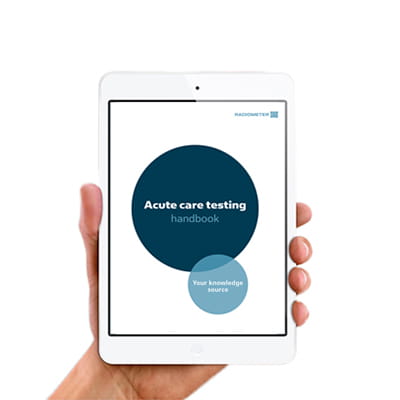Printed from acutecaretesting.org
March 2017
Lowest ever recorded potassium concentration – a case report
Summarized from ten Bos L, Veenstra T, Westerhof B et al. A case of extreme hypokalemia. Netherlands J of Medicine 2016; 74: 406-409
In health plasma potassium concentration is maintained within the approximate reference range of 3.5-5.2 mmol/L, so that hypokalemia (reduced plasma potassium) is defined as plasma potassium < 3.5 mmol/L.
Mild hypokalemia (plasma potassium in the range of 3.0-3.5 mmol/L) is a common electrolyte disturbance that may or may not be symptomatic, but severe hypokalemia (plasma potassium < 2.5 mmol/L) is less common and usually associated with signs and symptoms that reflect the importance of potassium homeostasis for neuromuscular transmission.
These include fatigue, constipation, muscle weakness or paralysis, and cardiac arrhythmia with characteristic ECG changes.
It is rare indeed for plasma potassium to fall below 1.5 mmol/L. This recently published case history describes the devastating clinical details of a patient who was found to have a plasma potassium of just 0.9 mmol/L, which the authors suggest is the lowest ever plasma potassium concentration recorded in the literature.
The case concerns a 45-year-old woman with a long-standing and complex clinical history that included hypertension, anxiety disorder and heroin abuse. Her dietary pattern was “very deficient” and supplemented with copious amounts of Red Bull high energy drinks. Her prescribed drugs included a thiazide diuretic to combat hypertension.
She was admitted to emergency room (ER) of her local hospital via ambulance after being found at home unconscious, but otherwise stable. On arrival at ER she developed the most severe cardiac arrhythmia (ventricular fibrillation, VF) with consequent cardiac arrest. After 26 minutes of CPR, circulation was eventually restored.
Blood testing at this time revealed severe metabolic (lactate) acidosis (pH 7.02, pCO2 10.2 kPa, base deficit 12.1 mmol/L) consequent on cardiac arrest and extreme hypokalemia (potassium 0.9 mmol/L). VF and consequent cardiac arrest was attributed to this extreme hypokalemia.
During the hours after transfer to intensive care, treatment was effective in normalizing pH and potassium concentration, and there were no further cardiac events. Sadly however, anoxic brain injury sustained as result of the 26 minutes of cardiac arrest was so severe that life support was withdrawn.
In discussion of this case history the authors briefly review the many possible causes of hypokalemia and justify their conclusion that in this case the main causes were severe dietary deficiency of potassium and thiazide diuretic use.
(Increased renal loss of potassium is a well-documented adverse effect of thiazide diuretics). Shift of potassium from plasma to cells potentiates hypokalemia. The authors argue that both epinephrine (administered during cardiac arrest) and catecholamines (present in Red Bull) might have contributed to hypokalemia by this potassium shift mechanism.
This case history provides a reminder that extreme/severe hypokalemia is a potentially fatal condition. The authors advise that malnourished patients on diuretic therapy require regular potassium monitoring.
May contain information that is not supported by performance and intended use claims of Radiometer's products. See also Legal info.
Acute care testing handbook
Get the acute care testing handbook
Your practical guide to critical parameters in acute care testing.
Download nowScientific webinars
Check out the list of webinars
Radiometer and acutecaretesting.org present free educational webinars on topics surrounding acute care testing presented by international experts.
Go to webinars







